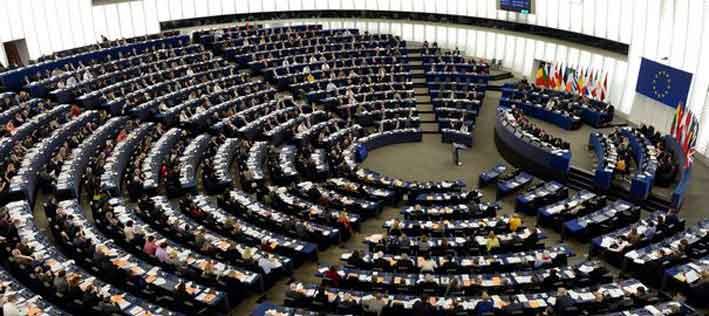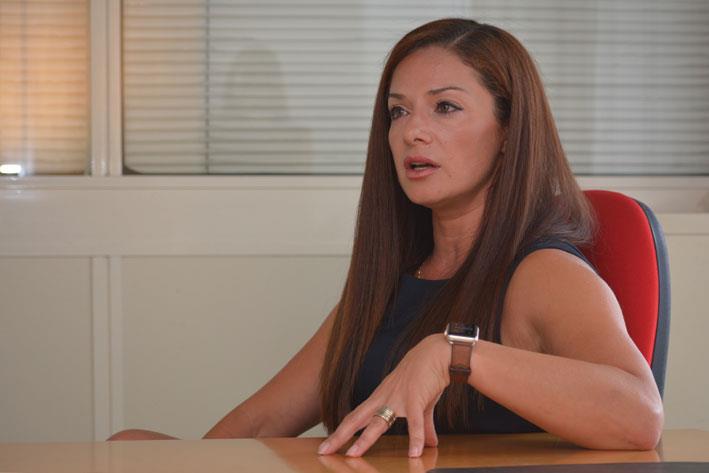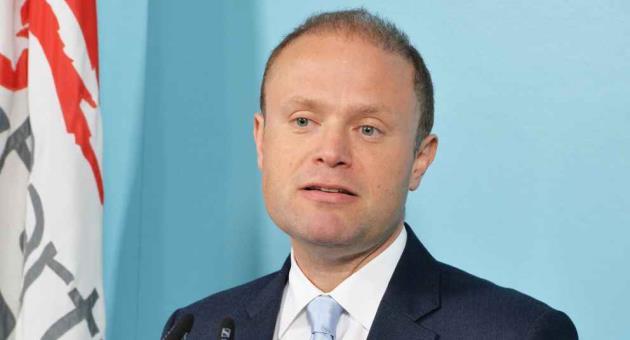Are you going to be running again for the upcoming MEP election?
That’s the plan
Both parties won three seats each in the last EP election. Do you believe there will be a different outcome this time around?
In politics nine months is a long time, and a lot of things could happen until then, so I do not feel comfortable making any predictions yet. I feel that the people who have shown interest in running for the MEP elections should continue working to make sure that we have a good turnout in terms of Labour voters, to ensure a good amount of Labour MEPs.
At the end of the day the results will depend on the work we are doing. If we do not work; if we do not campaign – the results will not come.
One of the main issues we see between Nationalist and Labour MEPs seems to be the vitriolic discourse that goes on between them, particularly on social media, and there doesn’t seem to be much teamwork going on. Is there hope that this could somehow change?
I think that in the end of the day it all depends on the people in those positions. I always wished from day one to work as one delegation. We are only six MEPs, the smallest delegation in the European Parliament, and it makes no sense that we are not working towards a common goal.
Unfortunately along the years we have seen that sense of togetherness fracturing, and the relationship is not as strong as it may have been in the beginning. Personally, I always wish to see the whole delegation working together as much as possible.

Despite our small size, Malta is constantly under the spotlight. Don’t you think that if we have potentially criminal activities going on in Malta, we should give it the necessary attention to keep it at a low as a level as possible?
I have never stated that we shouldn’t give attention to damaging things that are going on in Malta – I simply expect that the way our country is treated is at a par with how other countries are treated, and vice-versa. I am absolutely not in favour of our country being given a ‘red-carpet’ or special treatment, I simply wish for my country to be treated in the same way other countries are.
Unfortunately, I have not seen this take place.
If we had to speak about other issues, I have seen different treatment based on topics of particular nature. For example in the case of taxation – we see that Malta is being treated differently from other countries. I frequently notice that delegations from other countries, whenever they have issues that impact their respective country, come together rather than move apart.

In July you were appointed as the European Parliament’s rapporteur on migration. In Malta we are in a very particular situation because we have the second highest number of asylum requests per capita in the EU, and recently we’ve been taking a leadership role when such events take place. They are currently being treated on a case by case basis – now that you are in a position to push certain ideas, are we going to see a more permanent solution?
The legislation I am looking over has to do with a fund of around €10.4 billion that focuses on asylum, migration and also returns, which is to be used on developing policies revolving around this issue. I believe that in that political discourse we need to talk about the issue of integration, particularly when you have countries like Malta, and other countries as well, where we need human resources from foreign nations which include third country nationals and not necessarily EU nationals. As a culture, we need to look more into the issue of integration.
I think it is interesting that we mention an issue as important as migration because, as a country, irrelevant to whoever is or was in government, we have always been on the forefront of this issue. An issue which affected us much before it affected most other countries. We sometimes see larger countries such as Italy, who unfortunately are currently deciding to follow a narrative filled with arrogance without offering any solution.
Then you have countries like Malta, where you have a prime minister like ours who is trying to bring countries together to share the responsibility.

Don’t you think it’s time for an outside the box idea? For example, whether we believe it to be a good idea or not, Italian Interior Minister Matteo Salvini (above) said that he’s going to pledge €1 billion to Libya to slow down the flow of migrants to Europe.
There isn’t one solution to the whole problem. If he thinks that solving Libya’s infrastructure problem is going to be the silver bullet, then I don’t think he’s being correct in his assumption. Bearing in mind that most of the ideas that have been mentioned recently, for example that of platforms in other countries, require the cooperation of all the involved countries.
I have always pushed the idea that these problems are not only the issue of Malta itself or Italy itself, not even the EU on its own, but an issue which requires a push from the United Nations. If we really want to solve this issue, we need the input of many different countries.
This is because if we do not solve the issues in the countries of origin of these people, then they will never stop trying to escape. There is also the issue of returns, meaning a person who is no longer in need of protection or one that never needed it at all in the first place – why shouldn’t there be a process to have them return to their country?
We also have the issue of relocation – where we have countries from the 28 members of the EU who were meant take their share of migrants from Italy and Greece, but some still have not done their part.

(Miriam Dalli photos - Neil Camilleri)
Do you think we’ve come to the point where we cannot sustain all these individuals coming to our countries?
I don’t believe in open door policy for all, but I am definitely not one that says we should close our doors and let them fend for themselves – to me the answer lies in the middle. We should definitely think outside the box – if Salvini is saying we should make sure Libya has proper backing, it is definitely something to consider. Whilst, of course, making sure that people do not get stuck in Libya, and we end up back at square one.
Yes, we need to think outside the box, but we need to think about solutions that would include many different countries.
Aid money given to migration source countries often goes to governments – and it is an open secret that the funds are not always used for their intended purpose. How are we going to get around something like that?
This is where we need to think about things other than traditional methods, whereby money was thrown at the problem and thinking that the problem will solve itself.
Along the years we’ve spoken about relocation and responsibility sharing, but then when we come to the crux of the problem, we simply put money into these countries – as if by doing this we would solve the problem.
Here we need a system in place to make sure that these funds are being put into projects that help the people, rather than in the pockets of the wrong individuals. Till now I think the EU has failed in this respect, particularly when it comes to tracing where these funds are going.

But this has been going on for years. Why did we need to end up with someone like Salvini, whose motives might not be in the right place morally, to make us realise that we need to get it right?
Salvini came up with a proposal which he believes should be the way to go. If this is to work or not is a totally different story, especially bearing in mind that there isn’t even a government with which to work in Libya.
With whom is Salvini going to do these things? Which tribe? Is he going to work with one tribe and not the other? How is he going to get all the tribes to work together? Especially considering there have been so many attempts to do so and they are still as divided today as they were before.
This is not the first time we’ve spoken about Libya, this is not an idea we haven’t thought of before.
He said it in his own vociferous way, fair enough, but one has to see whether certain proposals will work in a concrete manner. That is where I see he has a hole in his plan.

Moving onto local politics, Joseph Muscat said he is to step down after 10 years, and there has been a lot of talk about who is to be his successor. You are often mentioned as a potential contender. Have you considered putting your name forward?
A lot of assumptions have been made based on what the prime minister has said exactly after the last election. In politics, a few months are a long time, and I do not feel comfortable entertaining those assumptions because I do not think it would do anyone any good.
My goal is to have a united Labour party, because if we remain united we can continue to lead the country in a positive manner. Bearing in mind that we have a prime minister who had the largest victories from any Maltese politician in history, I want to make sure that if he had to step down, we would have a person who would keep the party united and keep moving the country forward.
If, hypothetically for now, you were prime minister, would you accept having people in your administration who are trying to open accounts in countries that lack financial transparency?
If I had to be prime minister then I would take a decision, but I do not yet see that hypothetical transpiring.
As I have always said on this case, there are inquiries taking place and I must see their outcome. This is due to the fact that, as we've seen from the conclusions from the case of Egrant, the magistrate went into a lot of detail. I am convinced that the other magistrates will go into similar detail, and once those inquiries are made one must make their decision based on those inquiries.

But, for example, the Icelandic Prime Minister resigned immediately after the scandal broke. There is a sense of morality where people in public office should hold themselves to higher standards. Whether they were going to use these accounts nefariously or not, the fact that they were trying to open them remains morally ambiguous. If you had to be in a position where you'd have to make that decision, what would it be?
I believe in full transparency but, bearing in mind that there are inquiries ongoing, I would like to see the conclusions of said inquiries, upon which one must accept responsibility.
Do you think the Egrant inquiry report should be published in full? Do you think that the public deserves to know the truth?
I would prefer if it is published because it would set a precedent. No magisterial inquiry has ever been published in full. There was the Paqpaqli inquiry that journalists had access to, but it was still not published in full. And I understand the legal argument in that regard, but from day one, from the day the conclusions were published, I said that I would prefer to see the inquiry in its entirety.
I would prefer that because when you read the conclusions, I am sure that there is much more to it. And I would like to know who the involved persons were, and what their responsibilities consisted of. Because, at the end of the day, if responsibility must be taken, then it has be taken by everyone.
Do you think that it's right that the prime minister got a full copy of the inquiry report, but the leader of the Opposition has yet to receive one? It must be necessary to maintain the balance of power between the Opposition and the current administration?
The Prime Minister called for the inquiry himself. It was he who was under attack because this lie was an attempt to put our country in a political crisis, and ultimately the goal was to end his time as prime minister.
You even had Simon Busuttil ask the President of Malta to convince Joseph Muscat to resign - that was the severity of this case.